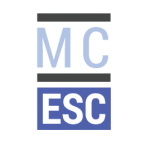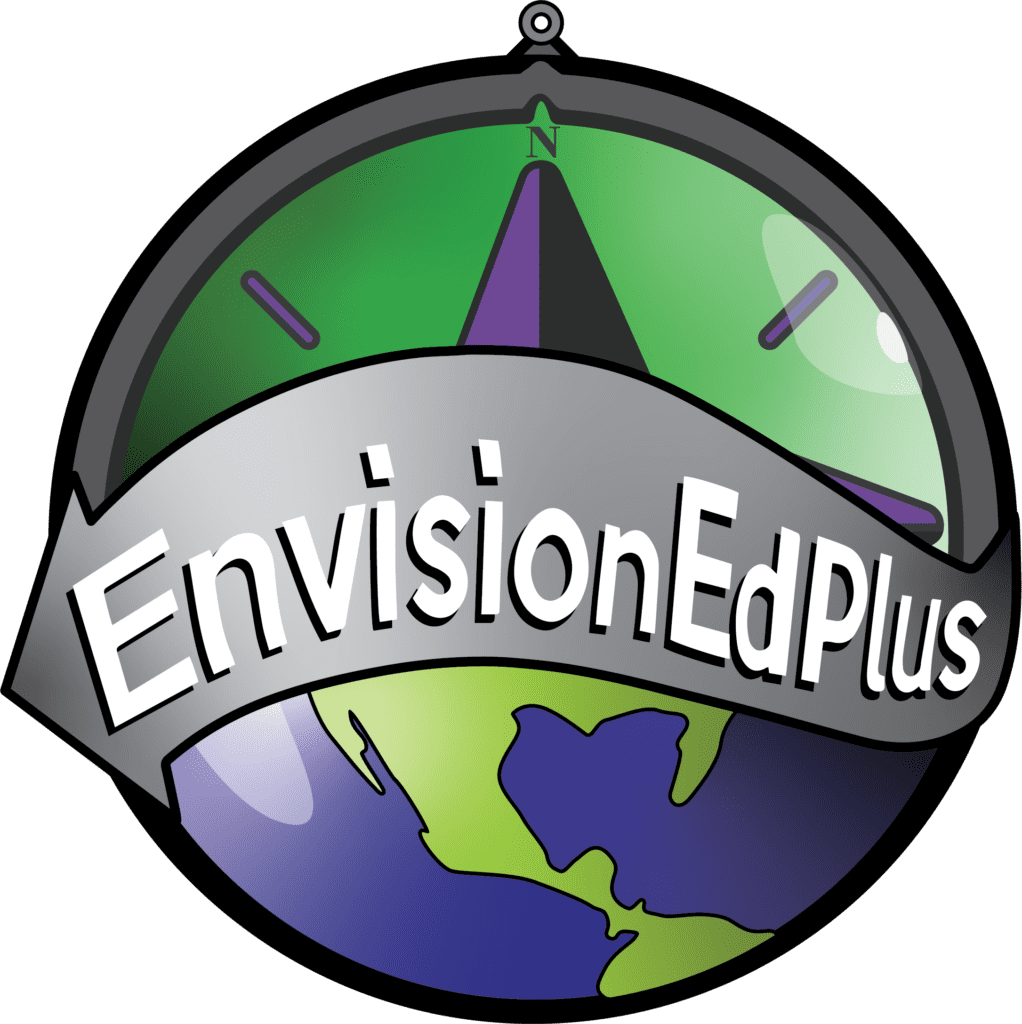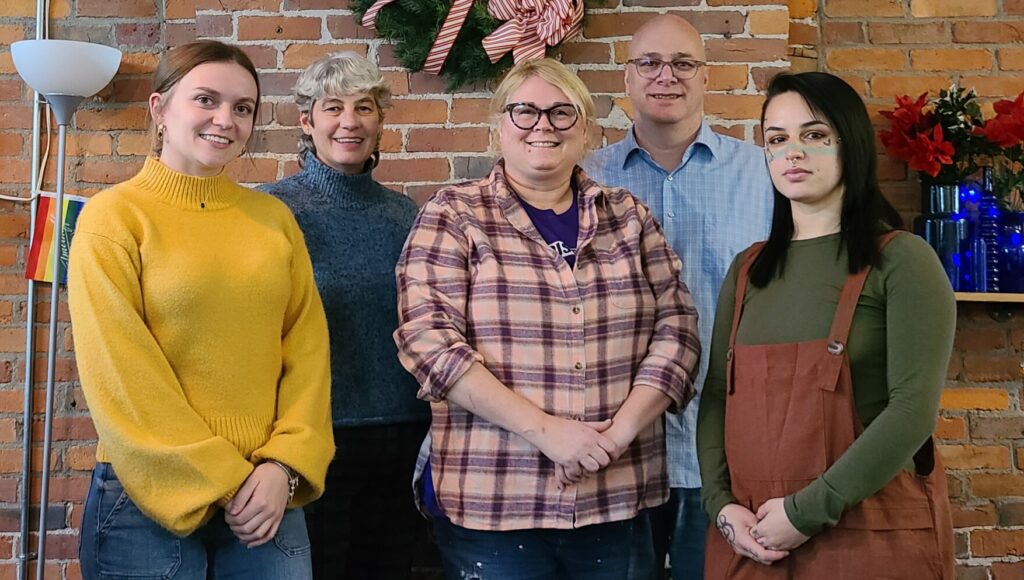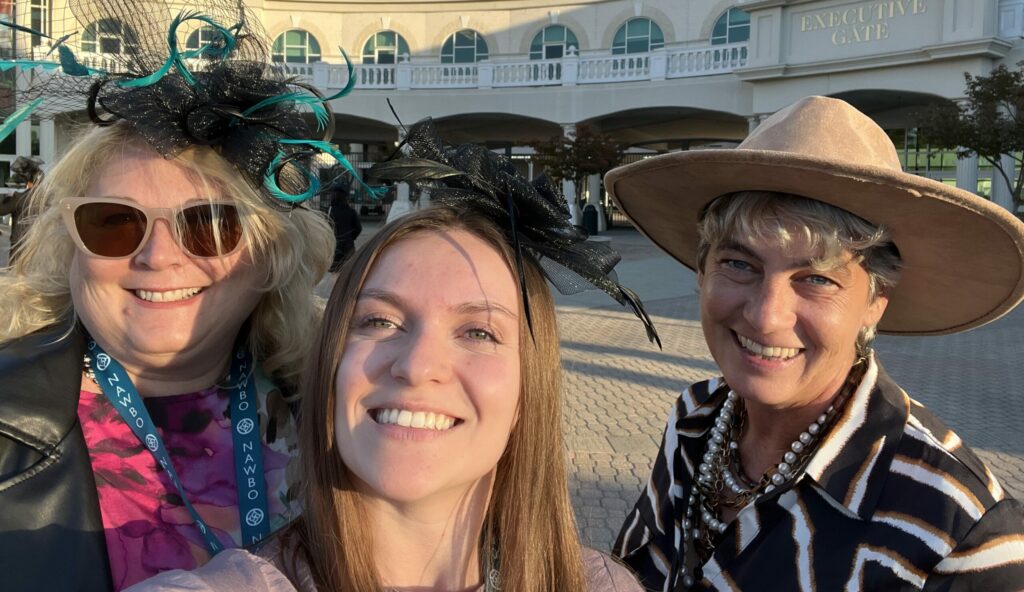 Recently, I had the pleasure of making new friends and re-connecting with some awesome teachers, leaders and innovators as they gear up for another great school year. The opportunity came about as we assisted Mahoning Co ESC in hosting a site visit for several staff members from Social Finance and Jobs for the Future. You may recall that earlier this summer, Mahoning Co ESC was selected by Social Finance and Jobs for the Future, through a grant from US Department of Education, to explore whether the ESC’s innovations in career and technical education through the Mahoning Valley’s Prepared for Success (MVPS) initiative could be expanded using the Pay for Success model. Rachel Levy, Associate Director at Social Finance told our team, “Innovative career and technical education initiatives like MVPS are helping pave the way for improved outcomes for youth. We’re excited to work with MCESC to find out if the tools of Pay for Success can help expand key parts of the program to reach even more students in need.” During the site visit, we learned more about Pay for Success from our new friends at Social Finance and Jobs for the Future. They learned about the great work and innovations incubated through the ESC’s Straight A Grant – Mahoning Valley Prepared for Success. The visit culminated in a tour of Inventionland in Pittsburgh where we were joined by Julie Michael Smith from Youngstown State University’s College of Education and a Board member for United Way of Youngstown and the Mahoning Valley. Ms. Michael-Smith shared her reflections on Inventionland, “It’s a firestarter of the “innovative mindsetâ€, setting the stage, creating a balance of excitement, possibilities and resources to encourage people to be creativity and the support to be successful, or successfully fail well enough to try again.
Recently, I had the pleasure of making new friends and re-connecting with some awesome teachers, leaders and innovators as they gear up for another great school year. The opportunity came about as we assisted Mahoning Co ESC in hosting a site visit for several staff members from Social Finance and Jobs for the Future. You may recall that earlier this summer, Mahoning Co ESC was selected by Social Finance and Jobs for the Future, through a grant from US Department of Education, to explore whether the ESC’s innovations in career and technical education through the Mahoning Valley’s Prepared for Success (MVPS) initiative could be expanded using the Pay for Success model. Rachel Levy, Associate Director at Social Finance told our team, “Innovative career and technical education initiatives like MVPS are helping pave the way for improved outcomes for youth. We’re excited to work with MCESC to find out if the tools of Pay for Success can help expand key parts of the program to reach even more students in need.” During the site visit, we learned more about Pay for Success from our new friends at Social Finance and Jobs for the Future. They learned about the great work and innovations incubated through the ESC’s Straight A Grant – Mahoning Valley Prepared for Success. The visit culminated in a tour of Inventionland in Pittsburgh where we were joined by Julie Michael Smith from Youngstown State University’s College of Education and a Board member for United Way of Youngstown and the Mahoning Valley. Ms. Michael-Smith shared her reflections on Inventionland, “It’s a firestarter of the “innovative mindsetâ€, setting the stage, creating a balance of excitement, possibilities and resources to encourage people to be creativity and the support to be successful, or successfully fail well enough to try again.
During our travels, I experienced two ‘aha moments’ which highlight the significant shift from traditional education to an Innovator’s Mindset that is taking place across the Mahoning Valley.
AHA #1: Personalization and innovation are not limited to traditional K-12 districts – it can and should be at the heart of learning in career tech education.
Mahoning County Career and Technology Center (MCCTC) and Valley STEMME2 are completely re-envisioning career tech education. MCCTC has spent the last two years planning and piloting a new way of organizing career tech programs using an ‘academy’ model. Traditionally, career tech programs operate fairly independently. There are limited opportunities for cross program collaboration. Students identify within their program (early childhood, cosmetology, fire science…) but have minimal connection to the larger school. MCCTC has turned that tradition on its head by creating four learning academies (Machine Team, Global Academy, SHIELD Academy, Academy of the Arts) that allow for identity building, cross curricular integration, and increased collaboration among staff and students.  Valley STEMME2 is an independent STEM school of choice which educates 9th and 10th graders on the MCCTC campus. This gives students earlier and deeper exposure to a wide variety of STEM career fields. Beyond the amazing learning experiences available to all students, I discovered how attentive both schools are to student voice and resident district needs. Last year, STEMME2 students let administration know they were very interested in computer engineering but it wasn’t offered at MCCTC. So, MCCTC administration created one
Valley STEMME2 is an independent STEM school of choice which educates 9th and 10th graders on the MCCTC campus. This gives students earlier and deeper exposure to a wide variety of STEM career fields. Beyond the amazing learning experiences available to all students, I discovered how attentive both schools are to student voice and resident district needs. Last year, STEMME2 students let administration know they were very interested in computer engineering but it wasn’t offered at MCCTC. So, MCCTC administration created one –right away. Computer engineering is now available to any student in Mahoning County. Local districts have expressed an increased interest in exposure to STEM education for elementary children and the need for faculty to learn about the maker movement. This year, with a generous grant from Arconic Foundation, Valley STEMME2 will be able to deploy a mobile FabLab to all MCCTC feeder elementary schools. STEMME2 students and teachers will guide the county’s littlest learners and their teachers through STEM design challenges using FabLab equipment. Through teacher to teacher PD next summer, elementary educators will then learn how to use their local makerspace or FabLab equipment for regular academic instruction.
AHA #2: Investing in local human capital and changing systems to better meet student needs make the greatest difference in creating an Innovator’s Mindset.
 Ken Burk, CEO of Inventionland Institute said it best during our tour of Inventionland‘s design studio last week “the greatest makerspace we have is the one between our ears”! We saw lots of evidence of this when we visited two very small, rural districts in Columbiana County. Beaver Local Schools (about 2000 students in grades K-12) and Columbiana Local Schools (about 1000 students in grades K12) are creating environments for students and staff that promote collaboration, design thinking and an entrepreneurial spirit. In each district, teachers and principals are encouraged to: partner with non-profits and businesses to find win-win opportunities for schools; students and the community; continuously redesign the student experience to increase learning and student engagement; and when needed, pursue grants to fund their own innovations.
Ken Burk, CEO of Inventionland Institute said it best during our tour of Inventionland‘s design studio last week “the greatest makerspace we have is the one between our ears”! We saw lots of evidence of this when we visited two very small, rural districts in Columbiana County. Beaver Local Schools (about 2000 students in grades K-12) and Columbiana Local Schools (about 1000 students in grades K12) are creating environments for students and staff that promote collaboration, design thinking and an entrepreneurial spirit. In each district, teachers and principals are encouraged to: partner with non-profits and businesses to find win-win opportunities for schools; students and the community; continuously redesign the student experience to increase learning and student engagement; and when needed, pursue grants to fund their own innovations.
We visited Beaver Local two days before school started and the back to school excitement was evident. Kids, parents, teachers and administrators were excited and ready. Middle and high school students were picking up their iPads. Elementary families were checking out their kids’ classrooms. Students and administrators were working together to ensure district’s first Back to School Bash went off without a hitch. At the Bash, every student would receive a backpack full of supplies, enjoy a community wide cook-out, learn how to access community resources and participate in a plethora of fun activities. After a nearly full day of professional development, teachers were still hard at work setting up their classrooms, greeting new students and families and getting ready for the Bash.

How can such a small, rural district with nearly 50% free/reduced lunch rate make all of this this happen? GRIT and an Innovator’s Mindset. Beaver Local has made strategic financial decisions to eliminate all textbook purchases and instead invest funds in technology, flexible and collaborative learning spaces and the professional learning experiences teachers need to truly shift teaching and learning practices to engage 21st century learners. Teachers have written grants for resources the district can’t purchase. Leaders and teachers reach out to social service and business partners to co-design ways to meet the great needs of children and families.
Columbiana HS has taken the challenge of industry credentials and alternative graduation pathways head on by working with the Mahoning County ESC and their MVPS Career Advising Counselor to review course offerings and find ways to offer industry credentials within current courses. Teachers shared with us that all it took was tweaking of WHAT and WHEN they teach related content. Other than that, no major overhaul was required. This small effort is terrific for students because in the past, industry credentials were really only available by sending their students off to a career and technology center. Now, Columbiana HS students can access this alternative pathway to graduation right in their home school while taking extremely popular, fun and interesting classes such as Clipper Graphics and Creative Entrepreneurship.
What I like best about each of these districts’ focus on innovation is their intentionality. Superintendent Don Mook told us that they are creating ways for teachers who use innovative instructional strategies such as credentialing and cross-curricular unit design to support other interested teachers so they, too, can grow their innovator’s mindset. Beaver Middle School Principal Connie Shive led a book study last year on George Couros’ book The Innovator’s Mindset. MCCTC and Valley STEMME2 invited EnvisionEdPlus to lead year long PD for their faculty to assist them in working with higher ed partners to plan and implement early college pathways.
Shift is happening in the Mahoning Valley. The EnvisionEdPlus team is truly honored to share this journey with them. We are also tremendously excited to see where this new partnership with Jobs for the Future and Social Finance leads.
~ Michele D. Timmons, President




